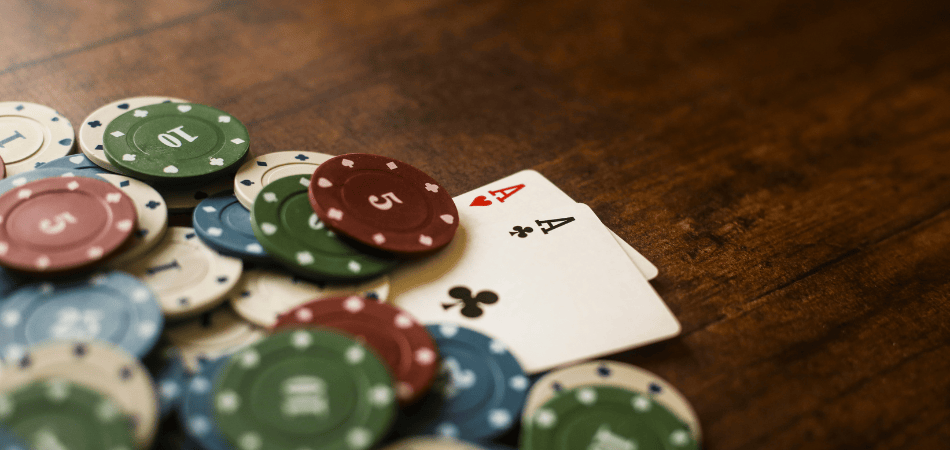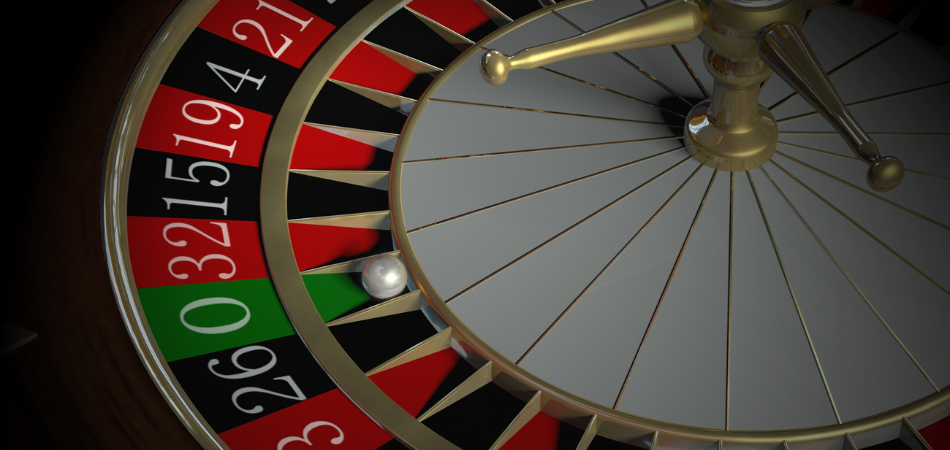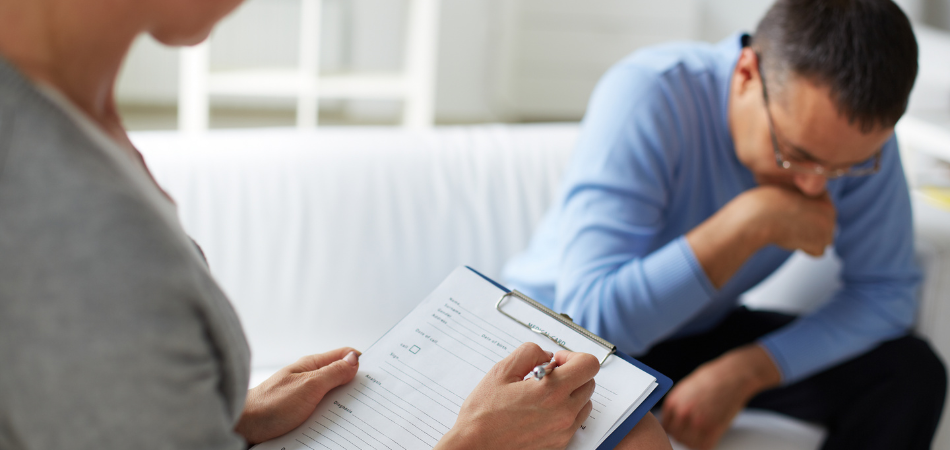
Written by:

Medically Reviewed by:
Last Updated:
February 14th, 2025
Gambling addiction
Gambling addiction is a form of behavioural addiction that has the capacity to have detrimental consequences on our well-being. So much so that it was classified as a mental health disorder by the World Health Organisation (WHO) back in 1975.
In October 2022, the gambling commission stated that almost half of Brits gambled in the last month, and most alarmingly, problem gambling is the highest on record for those aged between sixteen and twenty-four. Such shocking statistics urge us to become more aware of potential gambling addiction in ourselves and our loved ones. If you are concerned for yourself or someone you care about, take comfort in knowing gambling addiction can be treated.
What is gambling?
Gambling is when a person bets any amount of money (or something of value) on an uncertain outcome. Some examples of this could be:
- Purchasing scratch cards and lottery tickets
- Going to a casino and playing games like poker
- Playing bandits and slot machines
- Playing bingo
- Going to a betting office and betting on the outcome of a result
- Engaging in online gaming or apps
What is gambling addiction?
Gambling addiction is when someone feels powerless to stop gambling despite the adverse effects gambling has on their mental health, personal relationships, job, studies, or finance. Gambling addiction often starts small and innocuous but can rapidly escalate. People may start to bet more frequently and wager higher quantities of value the more they do it, without realising their gambling habit is costing them financially or emotionally. Therefore, people must understand the signs of gambling addiction, so they can receive appropriate therapy and treatments.
Spotting the signs and symptoms of gambling addiction
If you are worried you have a gambling addiction, you may be feeling anxious or scared. We can assure you that gambling addiction is treatable, but to overcome it, you must be honest with yourself. Look at the following statements to see if any apply to you; if they do, it may indicate you need to reach out for gambling addiction help:
- You lie to people close to you about the regularity and/or scale of your gambling.
- You gamble to make yourself feel better.
- You need to gamble more or with progressively higher stakes to experience feelings of excitement.
- You have repeatedly tried to cut down gambling or stop it altogether- but feel helpless to do this.
- You have lost an important relationship, job, or educational place because of gambling.
- Your thoughts are controlled by gambling, even at very inappropriate times.
- You feel irritable when you are unable to gamble.
- You have got yourself into substantial debt because of your gambling addiction.
- You have lost valuable possessions (a car, home, family heirloom etc.) purely through gambling.
What makes gambling so addictive?
Behavioural addictions function similarly to other types of addiction because partaking in behaviour like gambling stimulates the same flow of dopamine in the brain as drug abuse does. Often, a gambling addiction begins after a person experiences a win. Naturally, the person will encounter a rush of euphoria and wants to re-create that same thrill by placing another bet or upping the wager (gambling higher amounts of money or possessions).
On the other hand, when a person experiences a loss, they’re likely to feel disappointed and therefore lack the dopamine hit. This may cause them to bet even more or take higher risks until they manage to “out win” such losses, thus creating another surge of dopamine.
How do people get addicted to gambling?
There are many possible underlying reasons that cause people to suffer from gambling addiction. However, various environmental, biological, and genetic factors can contribute.
An emotional distraction from troubles
Recent studies revealed that gambling figures significantly rose during the pandemic, which indicates that people are more likely to gamble when feeling worried, stressed, or lonely. Furthermore, gambling is no longer limited to bookies or casino halls; in modern times, people can gamble from their laptops or smartphone apps. Thus, access to gambling resources is effortless. In fact, in 2022, 27% of Britons admitted to having gambled online in the previous month alone- making it the highest on record. Furthermore, when some people feel lonely, they can immerse themselves into a world of digital gambling where they may find temporary relief, 24/7- at the touch of a screen.
Genetics
Although scientific research is still underway, some findings suggest that people may be predisposed to gambling addiction. However, it’s important to take this with a grain of salt; gambling addiction is complex, and genetics likely play a very small role. Instead, environmental factors combined with genetics may have a greater influence on whether someone develops an addiction to gambling.
Co-occurring disorders
Studies have shown that people with gambling addiction are likely to struggle with anxiety and major depression. Furthermore, people with other co-occurring disorders, such as bipolar disorder, are up to four times more likely to develop a gambling addiction.
Monetary worries
Some people start gambling to solve any financial stress or pressure. Times of economic burdens or unemployment can tempt people to hedge bets to see if they can make quick money. Experiencing just one “win” can effectively ensnare someone into gambling addiction.
How can I get gambling addiction help?
The first step towards recovery is acceptance. Once you acknowledge that your gambling habits have gotten out of hand, you can take the necessary measures to overcome gambling addiction. You can start by speaking to a trusted loved one about your worries, as they can offer you support through your recovery journey. Then, it is important to seek out expert help for gambling addiction. We believe people can recover from gambling addiction and live a healthier life. However, we stand steadfast in our belief that recovery is a life-long process. This means that there is no direct “cure” for gambling addiction; for people to fully recover, they need to receive professional help and learn life-long coping mechanisms to prevent relapse.
Get professional gambling addiction treatment at Liberty House
We pride ourselves on our ability to help people from all walks of life overcome gambling addiction. If you choose to recover with us, you’ll be welcomed into our professional rehab centre, where you’ll take up temporary residence. At Liberty House, we take a holistic approach to help clients overcome gambling addiction. This means we provide treatments that address your mental, physical, and emotional needs.
Such integrated treatments have proven time and time again to be successful in gambling addiction recovery, as they encourage you to explore any underlying emotional issues that trigger gambling addiction.
Dialectical Behavioural Therapy (DBT). DBT for gambling addiction doesn’t just work on helping clients break away from their gambling tendencies; it goes further into their mental and emotional well-being by identifying any underlying thoughts and feelings that led to gambling addiction. Once these emotions have been addressed, DBT for gambling addiction can offer clients alternate solutions to manage unhealthy triggers. Clients can apply these solutions to their life after rehab, which will help them to prevent relapse.
Yoga and mindfulness. Yoga is accessible to anyone, and it can be challenging or gentle, depending on your preference. But most importantly, Yoga can soothe your nervous system, allowing you to access a place of inner peace and clarity. Yoga and mindfulness can help people overcome gambling addiction by offering them pause to process their emotions without being affected by external influences.
One-to-one therapy. Private sessions with a qualified therapist can allow you to talk about your problems and express your feelings in a safe space. Then, you and your therapist can look at effective ways to overcome any personal difficulties caused by gambling addiction.
We’ll help you to rebuild your life
If you’re currently struggling with a gambling addiction and thinking that recovery is impossible, take comfort in knowing that we treat people who feel powerless to overcome problem gambling, and then we see them (months, years or decades later) living a healthy and vibrant life- without gambling. So, please understand there is hope for you too. If you want to know more about the types of rehab treatment for gambling addiction we offer or if you’re worried about yourself or a loved one’s gambling habits, contact us today. A compassionate addiction care coordinator will be happy to review any questions you may have.








